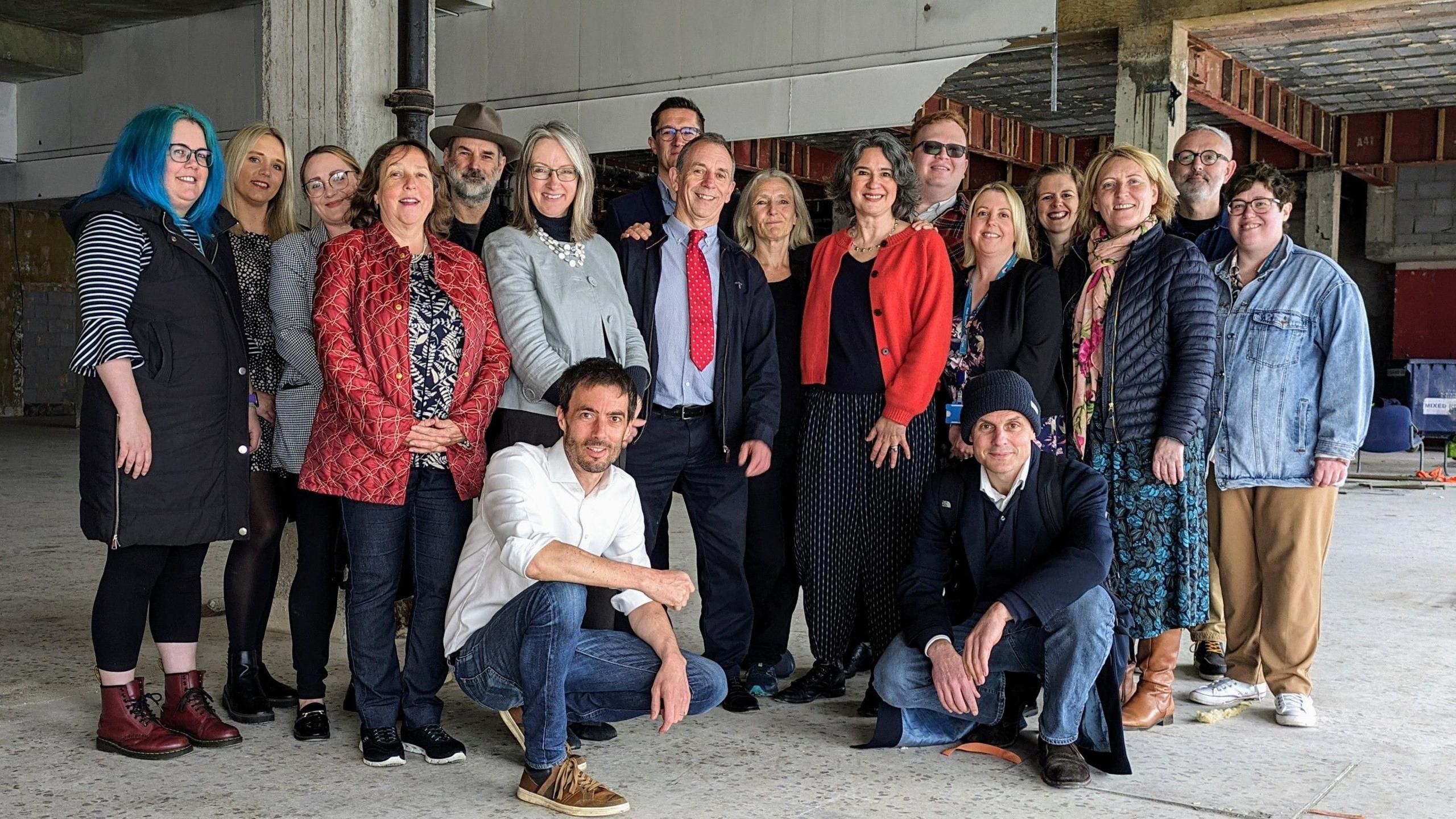New work inspired by fishermen's lives, says artist
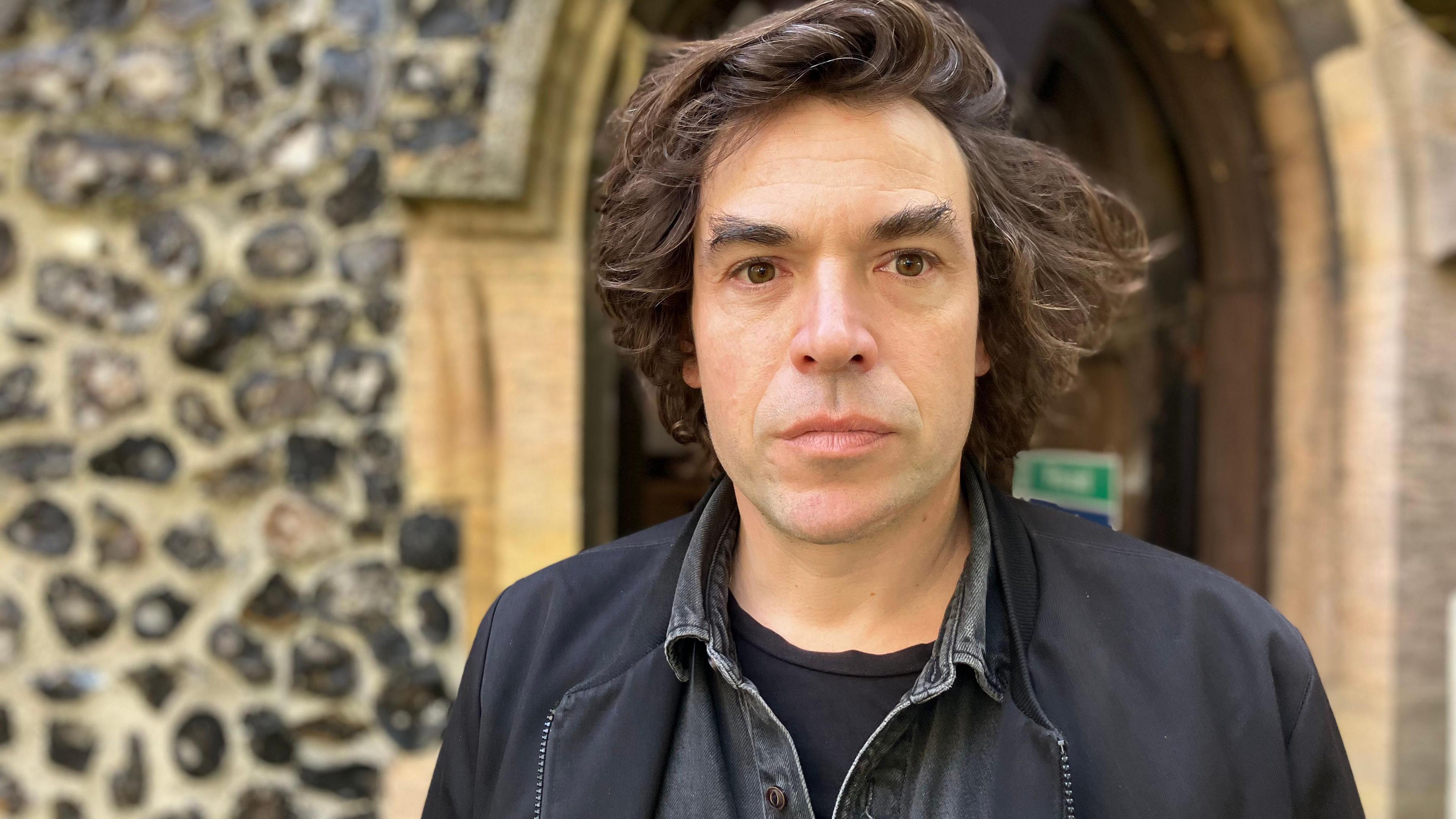
Slovenian artist Mark Požlep walked the 100km length of the Suffolk coast before creating Leviathan
- Published
The impact changes in technology, politics and the climate have had on fishing communities was the inspiration behind a new art installation, its creator said.
Leviathan, an audio-visual work by Slovenian artist Mark Požlep, has gone on display inside St Clement's Church in Ipswich as part of the Spill Festival.
Mr Požlep said the artwork was developed from conversations he had with North Sea fishermen during a 100km (62 miles) walk along the Suffolk coastline.
Mr Požlep said: "I learned that we don't live in synergy - nature has its own way and people and technology have another.
"We try to control nature, but nature is so powerful it constantly feel like two rivals, not as two entities that would work together."
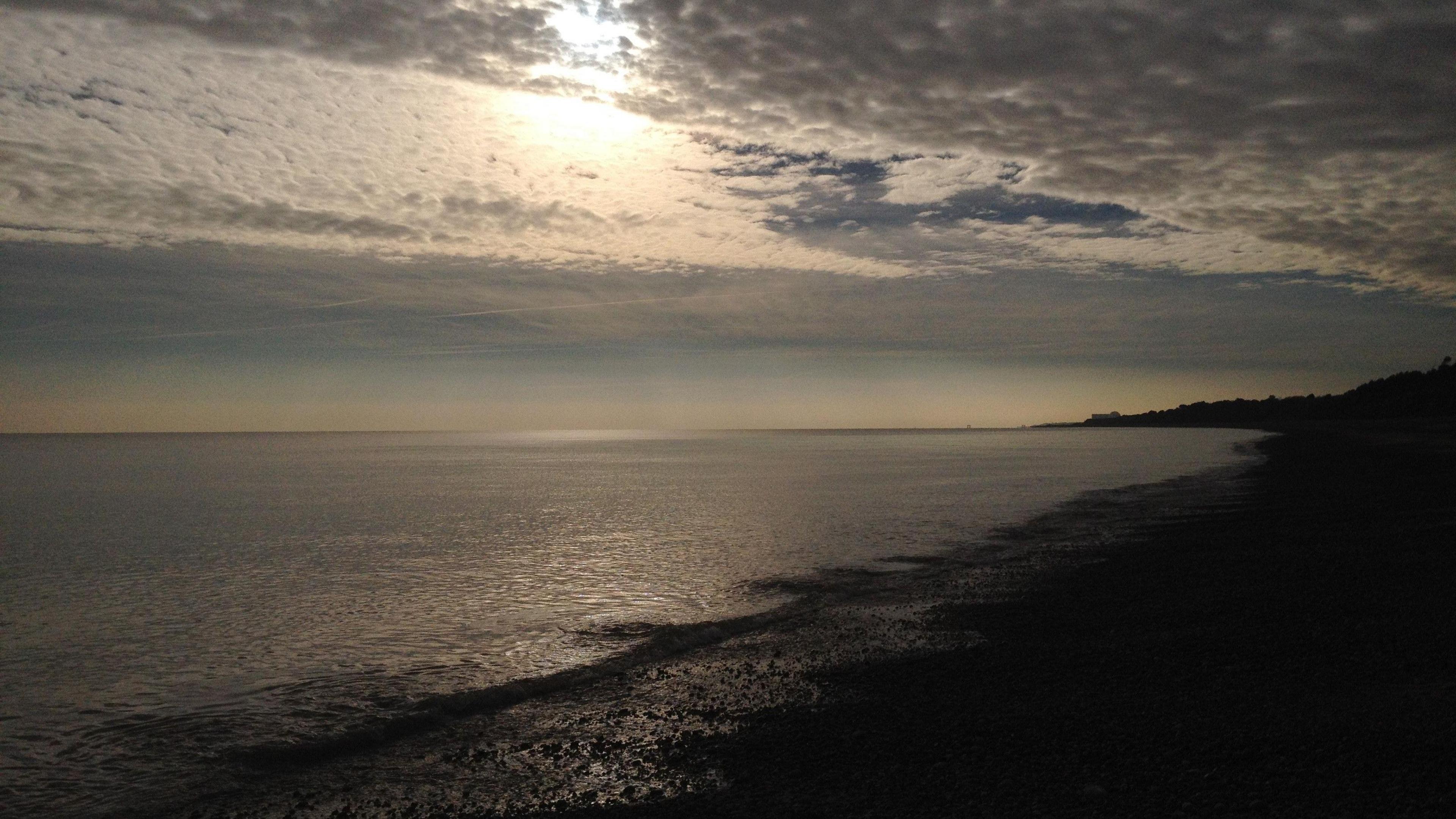
Mr Požlep's artwork was developed from conversations he had with North Sea fishermen during a 100km walk along the Suffolk coastline
Images taken when Mr Požlep was speaking to the fisherman will be part of the installation, along with a soundscape.
Mr Požlep told BBC Radio Suffolk that he mainly spoke to retired fishermen for the artwork, who reflected on the dramatic changes in the industry.
"They spoke a lot about overfishing, about the EU quotas, about Brexit - which also didn't really happen as they were planning.
"Then they spoke about their connection with the sea and the life that they earned with it," he said.
He added the artwork was "not preaching, it's not screaming, it's an observation. And I think that this is why it's necessary."
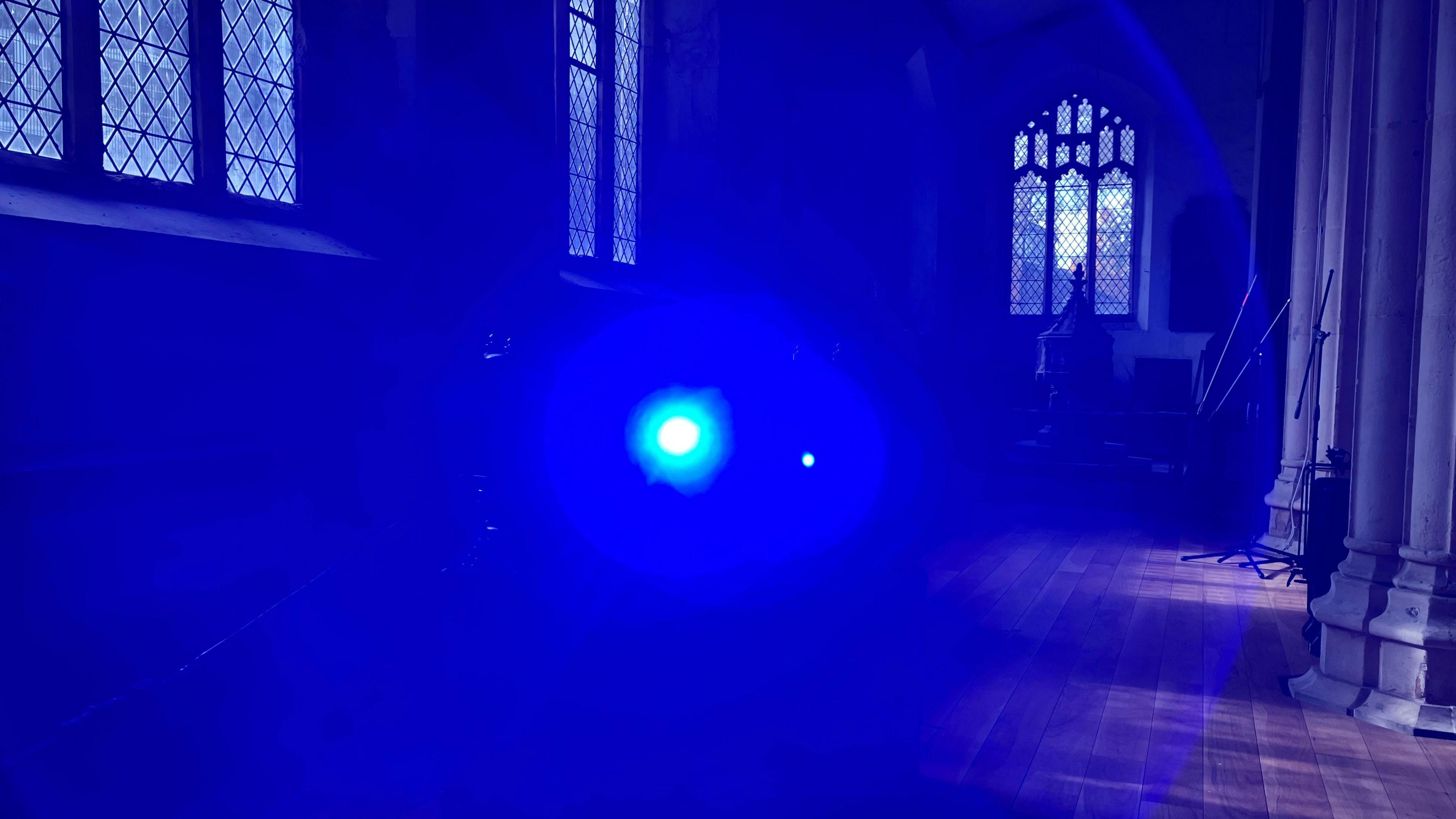
The artwork will be on display in St Clement's Church in Ipswich
As part of the festival, the artist will also be hosting a talk with Dr Tom Johnson, associate professor of medieval history at Oriel College, Oxford, on Saturday.
Dr Johnson, who is originally from Ipswich, is currently working on a micro-history of Walberswick, Suffolk, called The Fishermen's Church: Reckoning and Ruin in a Medieval Fishing Village.
"Walberswick is interesting because it actually is the place that probably benefits the most from Dunwich's decline.... during that same period when Dunwich is falling into the sea, Walberswick is becoming this really thriving village," he said.
The village of Dunwich was a victim of a huge storm in the 1200s, which washed away the monastery and parts of the village.
"One thing that struck me studying this is how little discussion there is of the identity of these places, which was bound up with the herring industry - a major employer of labour.
"Other parts of the UK have also undergone huge changes in that time; mining and steel and other heavy industry, and yet I don't feel like [fishing is] really part of the national story in the way that those things are.
"So I think one simple thing is sort of just to kind of remember it and say you know this is a major part of English identity."

The festival's artistic director Robin Deacon says Ipswich's cultural offer is often underestimated
Leviathan is part of a number of performances and events at the festival, which is being held in Ipswich from 23-26 October.
Robin Deacon, Spill's artistic director, said: "Not everyone necessarily goes into theatres or galleries or museums, or even feels comfortable in those spaces, so in a sense [the festival is] bringing that kind of creative process into the everyday, bringing it to people."
Get in touch
Do you have a story suggestion for Suffolk?
Follow Suffolk news on BBC Sounds, Facebook, external, Instagram, external and X, external.
Related topics
More stories like this
- Published22 August
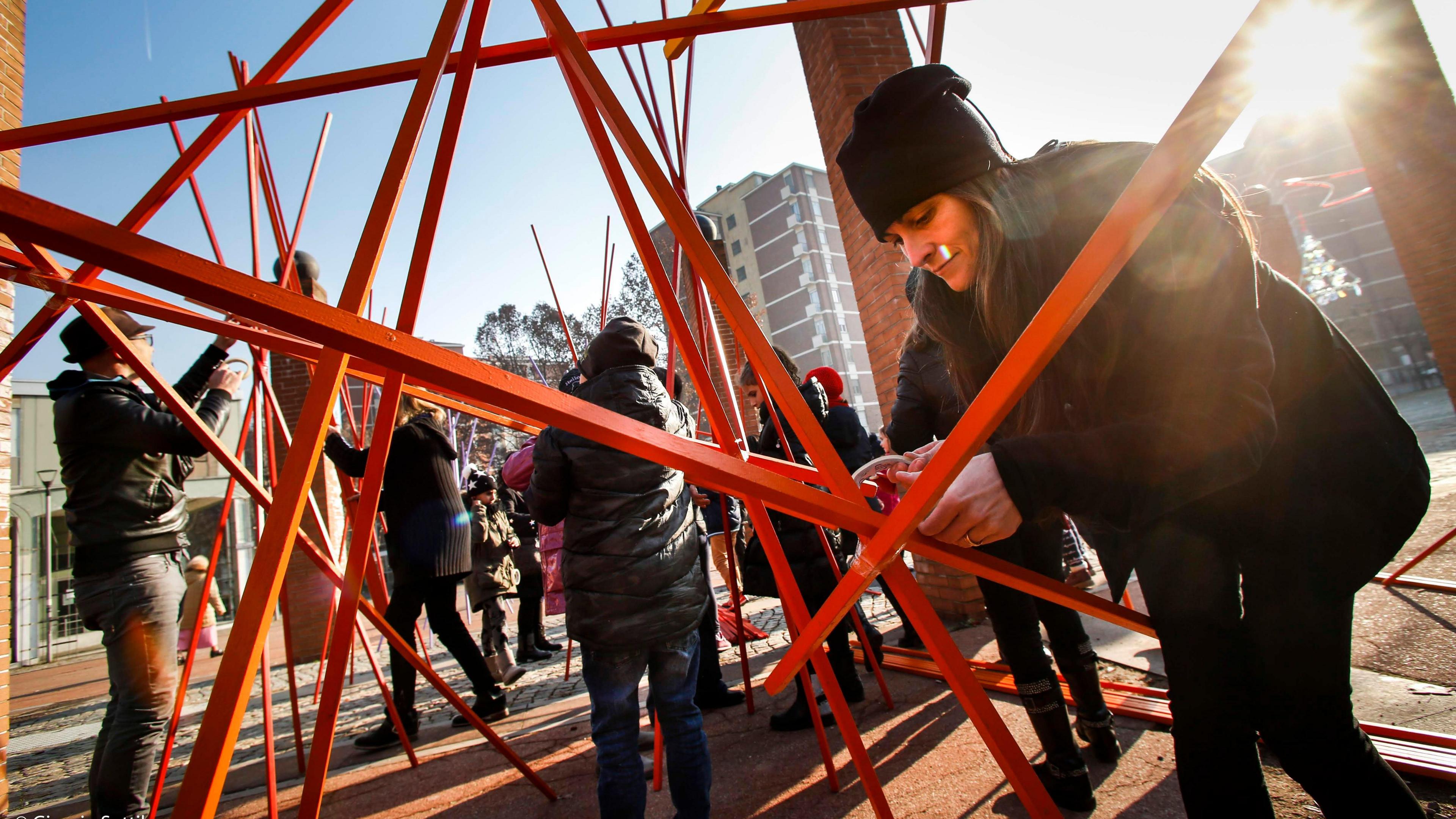
- Published16 November 2024
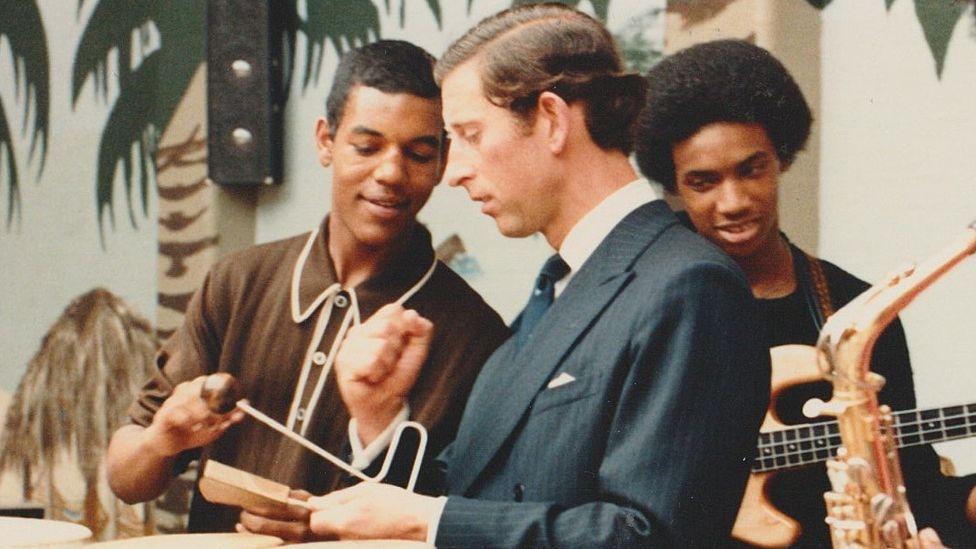
- Published9 May 2024
